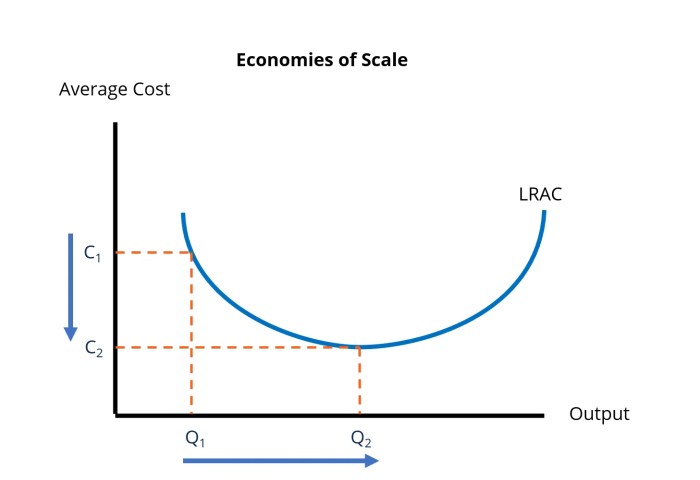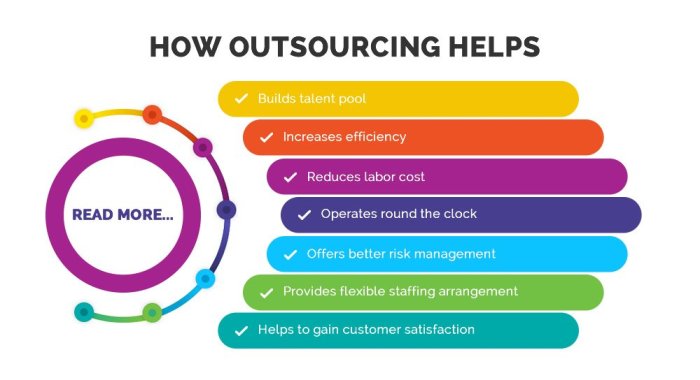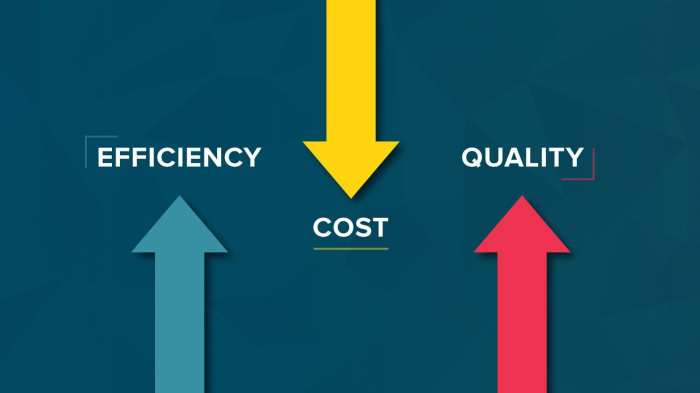What are some reasons that a firm might outsource logistics? In today’s competitive business environment, firms are increasingly turning to outsourcing as a strategic tool to optimize their operations and gain a competitive edge. Outsourcing logistics, in particular, offers numerous benefits that can help firms streamline their supply chains, reduce costs, and improve efficiency.
This comprehensive guide explores the key reasons why firms outsource logistics, providing insights into the financial advantages, operational benefits, and strategic implications of this practice. By understanding these reasons, firms can make informed decisions about whether outsourcing logistics is the right choice for their business.
Cost Savings

Outsourcing logistics offers significant financial benefits, including:
- Reduced labor costs: Outsourcing providers often have access to a large pool of skilled labor, allowing firms to reduce their payroll expenses.
- Transportation expenses: Outsourcing can optimize transportation routes and negotiate favorable rates with carriers, resulting in lower shipping costs.
- Inventory management costs: Outsourcing providers can leverage their expertise in inventory management to minimize inventory levels and reduce storage and handling costs.
Example: Company XYZ outsourced its logistics operations to a third-party provider, resulting in a 20% reduction in its operating expenses.
Efficiency and Expertise
Outsourcing logistics allows firms to leverage the specialized expertise of logistics providers, who have deep knowledge in:
- Transportation: Logistics providers can optimize transportation networks, select the most efficient carriers, and track shipments in real-time.
- Warehousing: Outsourcing providers can provide tailored warehousing solutions that maximize space utilization and minimize inventory shrinkage.
- Distribution: Logistics providers can design and implement efficient distribution strategies to ensure timely and cost-effective delivery of goods.
Case study: Company ABC outsourced its logistics operations to a provider specializing in cold chain management, resulting in a 15% reduction in lead times and a 10% increase in product quality.
Scalability and Flexibility
Outsourcing logistics enables firms to scale their operations quickly and flexibly in response to:
- Seasonal fluctuations: Logistics providers can provide additional capacity during peak seasons, ensuring uninterrupted operations.
- Market expansion: Outsourcing can support firms entering new markets by providing local logistics infrastructure and expertise.
- Unexpected disruptions: Logistics providers can provide contingency plans and alternative supply chains to mitigate the impact of disruptions.
Example: Company DEF outsourced its logistics operations to a provider that offered a flexible contract, allowing the firm to adjust its logistics capacity as needed.
Focus on Core Competencies, What are some reasons that a firm might outsource logistics
Outsourcing logistics allows firms to focus on their core business activities by:
- Freeing up internal resources: Outsourcing non-core functions like logistics can free up internal resources to focus on innovation, product development, and customer service.
- Improving decision-making: Logistics providers can provide data and insights that help firms make informed decisions about their supply chain.
- Gaining competitive advantage: By outsourcing logistics, firms can gain access to best practices and technologies that may not be available internally.
Case study: Company GHI outsourced its logistics operations to a provider that specialized in e-commerce fulfillment, resulting in a 25% increase in online sales.
Risk Mitigation
Outsourcing logistics can help firms mitigate risks associated with:
- Transportation: Logistics providers can ensure compliance with transportation regulations and manage liability associated with accidents.
- Inventory management: Outsourcing providers can implement inventory control systems to minimize inventory losses and prevent stockouts.
- Supply chain disruptions: Logistics providers can develop contingency plans and diversify supply chains to mitigate the impact of disruptions.
Example: Company JKL outsourced its logistics operations to a provider that offered a risk-sharing agreement, reducing the firm’s exposure to liability.
FAQ Explained: What Are Some Reasons That A Firm Might Outsource Logistics
What are the financial benefits of outsourcing logistics?
Outsourcing logistics can lead to significant cost savings in areas such as labor, transportation, and inventory management. By leveraging the expertise and economies of scale of specialized logistics providers, firms can reduce their operating expenses and improve their profitability.
How does outsourcing logistics improve efficiency?
Logistics providers have expertise in transportation, warehousing, and distribution, which allows them to optimize supply chain operations and reduce lead times. By outsourcing logistics, firms can improve the efficiency of their supply chains and respond more quickly to changing market demands.
What are the strategic benefits of outsourcing logistics?
Outsourcing logistics allows firms to focus on their core competencies and strategic initiatives. By delegating non-core functions to specialized providers, firms can free up resources and improve their overall performance and competitiveness.


